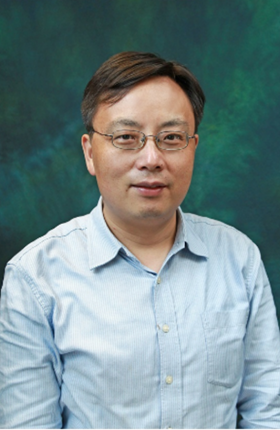
Prof. Feng YAN
Chair Professor of Organic Electronics, Department of Applied Physics, Faculty of Science; Associate Director of Research Institute for Intelligent Wearable Systems
The Hong Kong Polytechnic University
Biography
Feng Yan is a Chair Professor of Organic Electronics at The Hong Kong Polytechnic University. He received his Ph.D. degree in Physics from Nanjing University. He joined the Engineering Department of Cambridge University in 2001 as a Research Associate, became an Assistant Professor at the Department of Applied Physics of The Hong Kong Polytechnic University in 2006, and was promoted to a Chair Professor in 2023. He is a Highly Cited Researcher identified by Clarivate in 2021 and 2022. He has research interests in organic electronics, thin-film transistors, biosensors, solar cells, 2D materials, and smart materials.
Organic Electrochemical Transistors for Sensing Applications
Abstract
Organic electrochemical transistors (OECTs) have been successfully used in numerous sensing applications, such as biosensors, photodetectors and chemical sensors. Our group have been working on OECT–based sensors for many years. In this talk, I will introduce the following applications: (1) High-performance biosensors based on OECTs. By modifying the gate electrodes of OECTs, we have realized the detection of various type of biomolecules, such as IgG antibody, protein biomarkers and RNA. For example, portable and ultrasensitive COVID-19 IgG detection has been achieved with low-cost and flexible OECTs. (2) OECTs based on highly oriented 2-dimensional conjugated metal-organic frameworks (2D c-MOFs). Ultraflexible device arrays are successfully used for wearable on-skin recording of electrocardiogram (ECG) signals along different directions, which can provide various waveforms comparable with those of multi-lead ECG measurement systems for monitoring heart conditions. (3) Highly sensitive photodetectors based on perovskite solar cell-gated OECTs. The devices show ultrahigh sensitivity and fast response speeds. They can track photoplethysmogram signals and peripheral oxygen saturation under ambient light and even provide a contactless remote sensing, offering a low-power and convenient way for continuous vital signs monitoring. (4) Flexible phototransistors based on 2D c-MOFs thin films. The devices exhibit reliable photo-responses at room temperature in a wavelength region from ultraviolet (UV) to mid-infrared (MIR). Moreover, the photodetectors can show a typical synaptic behavior and excellent data recognition accuracy in artificial neural networks. These works indicate that organic transistors are excellent transducers for flexible/wearable electronics.


